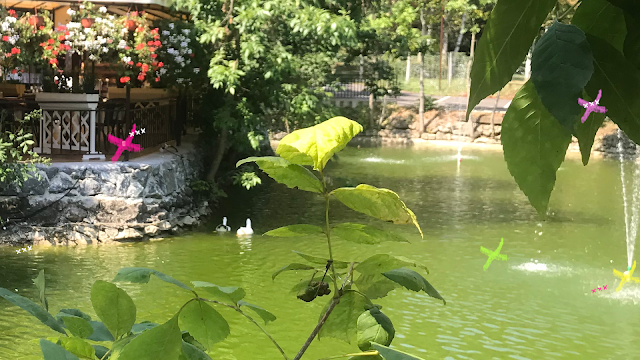Mostly where I like design is where it involves consideration of others: processing what one thinks one knows to share it. Understanding that sharing is not simply spitting out, but creating an environment for reception.
And to in turn seek out environments where others are sharing. Otherwise "others'" realms of thought and/or activity can seem impassable, opaque, forbidding. What has helped me relate more to the tech bubble that has been late to reach my latter-day place of abode has been to try to listen to what tech workers and designers are saying. Seeking out conscientious contributors.
And indeed, such people are surrounded by environments shaped by lines of inquiry that can overlap one's own (and to what an extent...)
Here is an example of two such figures, Andy Matuschak and Michael Nielsen, who wrote a post I know will interest you: "How Can We Develop Transformative Tools for Thought". The authors are great names in the tech industry. The paper overlaps so many thinkers I am drawing on in my own work - and I would be so curious to see if this will be true for any of you, too, from different angles. I am guessing that, if you are stopping by this blog, you are also interested in thought ... and meaning.
 |
| Source, by Daniel Oliva Barbero |
It would be reductionist to paste any single meaning over tech advancements of recent decades (which are so impressive: without even going into the details, consider the ability to process over 25 billion events in an hour). At the same time, some of the critique offered by Lewis Mumford, remains prescient: "He who does not see the choices in the development of the machine merely betrays his incapacity to observe the cumulative effects." I think that the authors of the article above would agree with this sentiment.
The tool can quickly become reductionist.
I might have lost appreciation of this had I not "gone Linux" this year (Windows is too expensive for my wages/salary). This move also caused me to lose Scrivener, with the coherent draft of my book and so in turn I have plunged into exploring "org mode". Both of these experiences made me feel (as corny as it sounds) like that film about the man who thought his life was a game show until he broke through to the other side. I doubt I fully watched it, but in my memory, a man suddenly walks around in a world of colors he could only have dreamed of before then...
What some people might find to be the decision fatigue of Linux, I suddenly find myself truly engaged with my computer and feel it to be my tool.
It's like how I have a deep need to keep this blog interface the way it is though I am not sure if it translated well to mobile presentations. If it did, what an incredible job the Google engineers and programmers are doing to allow for multiplicity.
My computer is now shaped just how I want it. And org mode! It reminds me of childhood adventures with Apple IIe; its epithet as being the Swiss Army knife of programs is well-deserved. I must admit that I may be breaking my computer as I learn (I have entered terminal - where one enters code - to do things I did not fully understand more than once), I have not had this much fun using a computer since the Apple computer I once battled to get time on. There were games for children to learn programming: I remember one about selling lemonade, or another to make text display and move in desired directions.
Which is a fancy way of saying that unless we are engaging with the processes around us, they are not fully engaging us and we run the strange and converse risk of being used by them.
But of course, many people have said that better, many times before now. The point here will be to conclude by wondering aloud what kind of experiences we are building around us with the tools that we have. I know that I have become a better and more focused person through my experience designing networked learning and developing the STS (science and technology studies) of my quondam dissertation. There are a lot of problems in 2020. But there are also tools. (The girl in the picture below does not know what she is missing by not being taught the code behind the interfaces she is now accustomed to...)
 |
| Source, techlicious |










